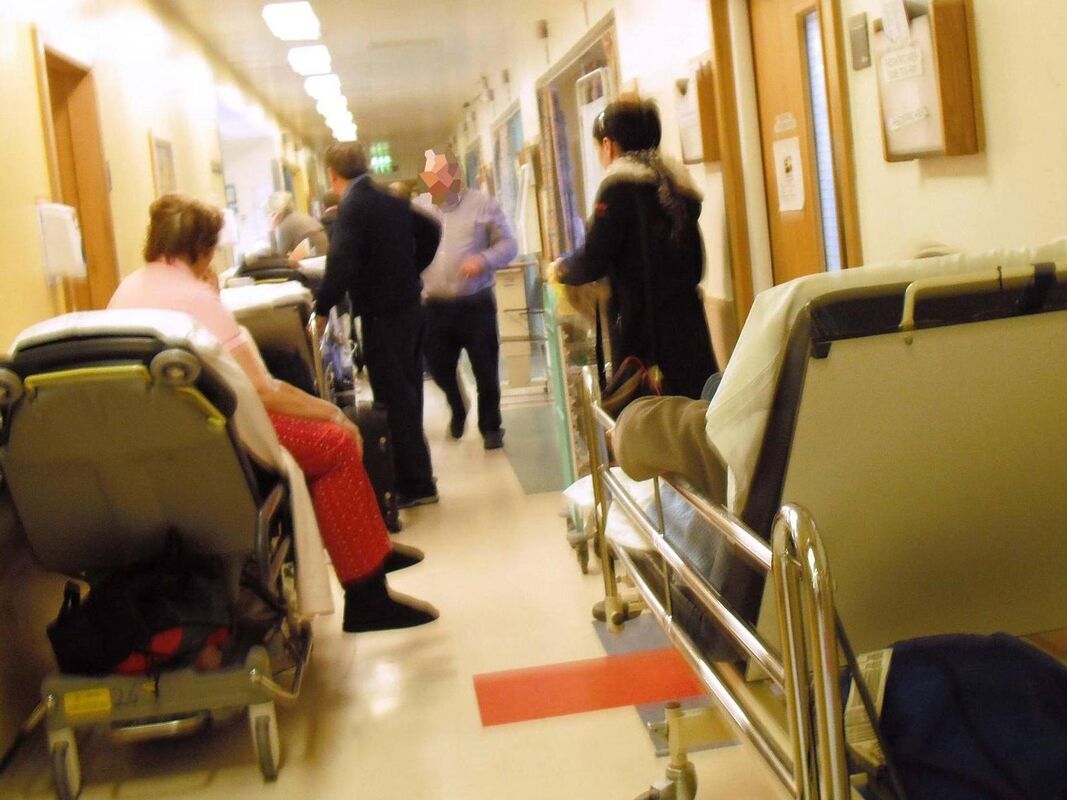By Donal Devlin
2023 opened with an all-too-familiar story of overcrowding in public hospitals across the state – only, this time, it’s worse. A record 931 and 838 people were lying on trollies, waiting on a hospital bed, on 3rd and 4th January respectively.
Record figures
This is the highest figure since the Irish Nurses and Midwives Organisation (INMO) began collating such figures in 2006. It points to a wider crisis as far as hospital beds – or lack thereof – are concerned; on 21st December, another record was reached when it was announced that 118,662 patients had been on trollies at some stage since the beginning of 2022. The human cost of this lack of adequate investment in hospital beds is a devastating one. Each year, up to 400 people die in A&E units as a result of overcrowding.
The government has tried to avoid blame for this crisis, suggesting it is the by-product of the “perfect storm” of rising flu, RSV and Covid cases. However, this problem is ultimately the result of decades of underfunding and austerity that has had a devastating impact on the health service.
In the past ten years, successive governments – including both Labour and the Greens, along with Fine Gael and Fianna Fáil – have closed eight A&E units. On top of this, the number of beds in the state has fallen by over a third since 2008 – then, the number of beds stood at 21,789; today, it stands at 14,412. This is despite the fact that the population of the state has risen by 200,000 in the same period. The number of hospital beds is significantly below the EU average – the latter figure is 387 beds per 100,000 people; in Ireland, this figure stands at 269 beds per 100,000.
Staff retention
Another factor in driving the crisis in our health service is the question of staff retention. Working in an underfunded service on poor pay and conditions is undoubtedly a difficult and demoralising experience. A recent survey carried out by the INMO found that two thirds of nurses are considering emigrating and one third are considering leaving the major cities because of the cost-of-living crisis. A similar situation is being faced by other public sector workers such as teachers, thus putting further pressure on vital services, such as education and health.
We need emergency measures to tackle this crisis. The INMO and other unions representing health workers must take the lead in mobilising their members to demand the necessary action to end this crisis.
This means:
Permanent nationalisation of private hospitals with no compensation, ending the obscene existence of a two-tier health service.
Taxing big business and the super-rich’s wealth – from 2021 to 2022, Ireland’s nine richest billionaires increased their wealth by €10.8 billion. Notwithstanding the Irish state’s low tax regime, an additional €7.3 billion came in revenue from corporation tax last year, meaning huge profits are being made in the Irish economy.
Hiring healthcare staff on decent wages and conditions, and ending the housing crisis.
Creating a one-tier, top-quality, national public health service that is free at the point of use and funded through progressive taxation.
This whole crisis graphically exposes where the priorities of capitalism in our society lie, and it is certainly not with the interests of ordinary, working-class people. We need to break with this system and use the wealth and resources of society for the needs and benefit of all.












